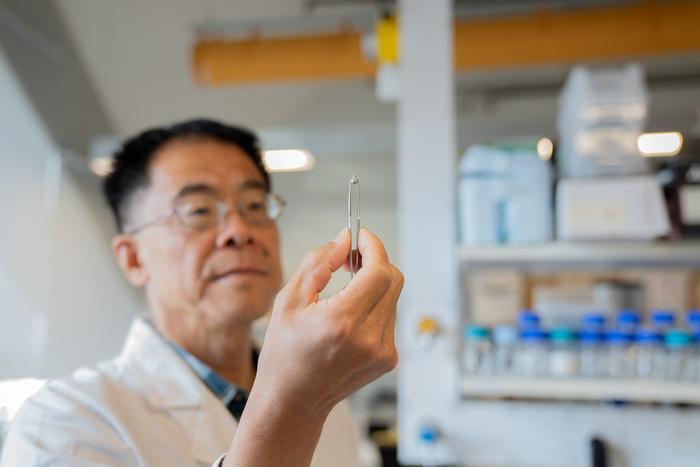In an innovative breakthrough, researchers at Monash University have developed a revolutionary zinc-based dissolvable material that could dramatically change the landscape of orthopedic surgery. Traditionally, stainless steel or titanium implants have been the go-to solutions for stabilizing broken bones. While effective, these materials remain in the body indefinitely, posing risks of discomfort and the potential necessity for Additional surgeries to remove them. This new zinc alloy offers a promising alternative that aligns with the principles of biocompatibility and tissue healing, enhancing patient recovery while mitigating risks associated with permanent implants.
Lead researcher, Professor Jian-feng Nie, outlines the advantages of their zinc alloy, noting that it combines mechanical strength with the capacity to dissolve safely over time. This unique property allows the material to provide structural support during the critical healing phase of bone repair while gradually degrading to eliminate any long-term risks associated with leftover foreign materials in the body. This concept of an “ideal implant” that clocks in a balance between strength and biodegradability could mark a paradigm shift in orthopedic devices.
The groundbreaking research has been documented in a recent study published in Nature, revealing the engineering processes involved in tailoring the zinc alloy. In pursuit of optimal strength, the researchers meticulously altered the size and orientation of the material’s grains. The results of these modifications were staggering, providing a more robust structure while also enhancing the alloy’s flexibility. Such attributes could allow the implants to not only conform to the surrounding tissues during surgery but also accommodate changes as the tissues heal and reshape.
Furthermore, Professor Nie highlights the transformative implications for patient care. This zinc alloy could lead to safer surgical procedures, reduced rates of post-operative complications, and decreased instances of additional surgeries due to discomfort from permanent implants. Importantly, the innovation caters to the growing desire for sustainable medical solutions. By creating an implant that processes and reacts to its environment non-invasively, the researchers are home to a future of orthopedic care that aligns with both medical advancements and ecological sustainability.
Although promising, this technology is still in its initial phases of development and deployment. The study speaks to a broader trend in biomedicine: the move toward next-generation implants made from biodegradable materials that do not compromise the healing process. By establishing this groundwork at Monash University, the research team is setting forth the creation of a start-up focused on bringing these next-generation biodegradable implants to market, emphasizing their commitment to clinical application and patient safety.
As the discussion about the future of orthopedic care unfolds, the research team is keen on collaborating with relevant industry partners to ensure the effective and rapid commercialization of their findings. The introduction of biodegradable
Tags: benefits of zinc alloys in implantsbiocompatible materials for bone repairbiodegradable orthopedic solutionsdissolvable materials for bone healingengineering processes for implant developmentenhancing patient recovery in surgerymechanical strength in orthopedic devicesMonash University research breakthroughsorthopedic surgery innovationsreducing risks of permanent implantssafer alternatives to steel and titanium implantszinc-based dissolvable implants





